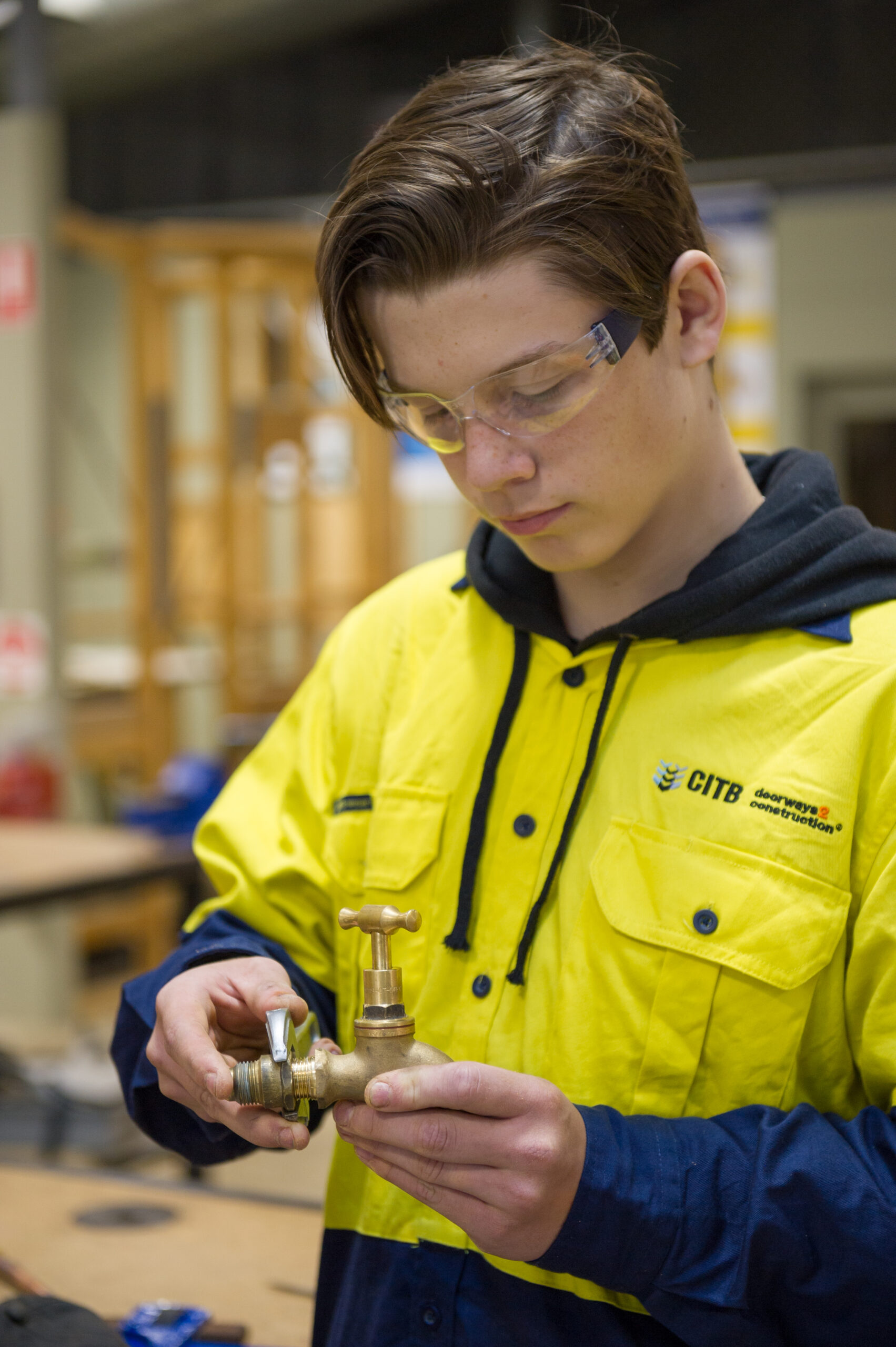Vocational Education and Training (VET)
VET refers to national vocational qualifications that are endorsed by industry. VET courses deliver industry endorsed units of competency from nationally endorsed training packages which are recognised across Australia. Studying a VET program while still at school can:
• Provide students with a head start in their chosen career
• Make senior school studies more relevant and
interesting
• Enable students to work towards completing SACE as
well as gaining a training qualification
• Provide opportunities to learn “on the job” while
undertaking work placement
Hallett Cove School is part of the Southern Adelaide and Fleurieu Secondary Schools Alliance (SAFSSA) consortium of schools in the Southern Adelaide, Fleurieu Peninsula and Kangaroo Island regions. Students access a range of vocational courses across the region hosted by local schools working with the localcommunity and industry. At the same time, young people will be able to achieve their South Australian Certificate of Education (SACE) while learning skills and working toward industry-accredited qualifications. They will be better prepared to take on apprenticeships and skilled jobs in areas that have identified skill shortages.
Students also have access to two types of VET for school courses:
• Flexible Industry Program (FIP) – accessible to Year 11
and 12 students
• Stackable VET (Short Courses) – accessible to Year 10 to
12 students
These programs have been designed in partnership with industry to identify qualifications appropriate for school students and develop the skills, knowledge and competencies valued by employers. They provide an industry- endorsed pathway to entry level employment, better preparing young people for real jobs, and providing a pipeline of young skilled workers for South Australia’s growing industry sectors.
Depending on the needs of employers, the programs may include:
• VET qualifications at Certificate II and III level that are
appropriate for school students
• enterprise and employability skills training
• any specific industry requirements linked to the pathway
• compulsory SACE subjects and contextualised delivery of other school subjects so that students can complete both a VET qualification and their SACE concurrently.
The FIPs consist of Certificate II and III courses. The courses offered in the region cover a range of different occupational areas, for more information please see the current SAFSSA Course Brochure or the Student Pathways website. Students are dedicated to one day a week at their VET course which is managed alongside their other school subjects.
VET courses outside the FIPs are available to school students, known as stackable VET. These are usually short courses that attract SACE credits. They aim to provide:
• pre-vocational skills
• work preparedness
• the opportunity to try out different areas before
committing to a qualification.
They’re ideal for students who want to try out different areas or develop some skills for part-time work.
VET Readiness Orientation (VETRO)
Selection for entry to courses will be based on the following guidelines:
• Identified relevant interest and/or previous workexperience
• Demonstrated capacity for independent learning
• Identified career pathway
• Demonstrated suitability for the course
• Meeting of any predetermined requirements (e.g. Language, Literacy and Numeracy assessment)
The VET Coordinator will meet and identify selection based on the above factors (in conjunction with the parents and Year Level Manager).
Course Fees
VET courses comply with Industry Training Packages. Many of the courses include an additional financial fee. There is a variation of costs between similar courses due to differences in agreements with Registered Training Organisations and host schools. This may be due to training, assessment or the competencies selected.
Travel Arrangements
If students have chosen to participate in a course at another SAFSSA school or Registered Training Organisation, parents/caregivers will be required to arrange transport for their child to the training and work placements.
Structured Workplace Learning (SWL)
SWL is an opportunity for students to experience a real or simulated workplace opportunity relevant to your VET program. The benefits of SWL include: learning new skills, working as part of a team, experiencing the workplace environment and becoming better informed for further career choices. Some VET courses require some SWL to fulfil the qualification and others will recommend it.
Flexible Apprenticeships (previously Australian School Based Apprenticeships)
Flexible Apprenticeships’ allow senior secondary students to combine training and work in an industry area to achieve a nationally recognised vocational qualification that contributes to their SACE completion. Features of Flexible Apprenticeships are:
• Attendance at school and paid work (8 hours per week
minimum at work, can be up to full time in some
circumstances)
• A training agreement which links to an industrial award
• Attainment of SACE and a vocational education and
training qualification
• Access to a wide variety of vocations, provided applicable
awards have been varied to accommodate part-time
hours
Flexible Apprenticeship – Personnel
STUDENT:
Must be committed to work and study in order to obtain qualification and must fulfil all obligations as defined in the Contract of Training. Students should also be on a SACE completion pathway.
Employer:
Needs to be flexible with working hours, provide adequate training and supervision, fulfil obligations as defined on the Contract of Training and negotiate training plans with NTO upfront.
Nominated Training Organisation (NTO):
Delivers competency-based training in accordance with the Negotiated Training Plan and supports VETRO requirements.
School Principals, Career Advisors and Teachers:
Has the duty of endorsing the Flexible Apprenticeship and make the student aware of all the implications of signing the contract of training.
Parents/Guardians:
Must agree to terms and conditions and co-sign the Contract of Training if the student is less than 18 years’ old
For more information about SAFSSA courses, courses offered by other regions and NTOs, Flexible Apprenticeships, and FIPs please contact Chris Gregory, VET Coordinator.





